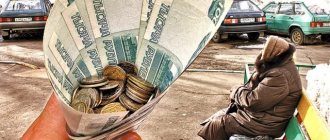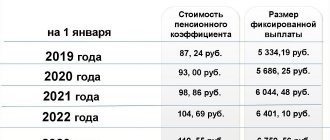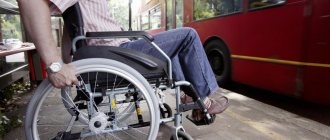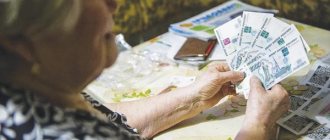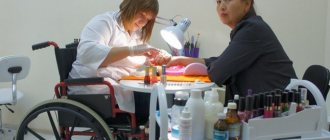One of the main issues in 2021 is the pension for a disabled child, namely: how much it will be increased and how to get it. In addition to the fact that such a child cannot independently fulfill everyday obligations, such as:
- Help around the house.
- Visit to school.
- Free movement. Etc.
He also restricts his parents and guardians. Constant care requires a lot of time and effort, and not many people can successfully combine work and household responsibilities with care.
The state is called upon to solve this problem by providing a child’s disability pension and a set of social benefits.
The concept of “disabled child”
To receive financial assistance, the family must prove that the child:
- Has a health problem or physical disability that prevents him from functioning independently.
- He does not have the opportunity to walk, serve his own basic needs and have full contact with society.
- To maintain life and health, he needs constant treatment, which consists of taking medications and regular rest in medical institutions.
Depending on the severity of the injuries or the difficulty of communicating with such a child, he is assigned a disability group that determines the degree of social support.
Disability pension for a child, what does it mean?
If a child is recognized as disabled, he is provided with financial support and social benefits. Money will be paid to the guardians until the illness or injury is cured or until the child reaches adulthood. If, after reaching 18 years of age, the subject remains disabled, then he will continue to receive a pension, but its amount will be changed.
Registration of a pension for a disabled child
In order to receive support from the state, parents must submit an application to the Pension Fund. This can be done at any time, but payments will only be made after receiving approval from the commission.
Documentation
The first thing parents or guardians should do is collect documents.
What to prepare:
- Application for a pension for a disabled child.
- Original passport of the legal guardian.
- Original birth certificate.
- Conclusion of the medical and social examination service.
- Child registration.
- Insurance policy.
The good news is that the review period is short.
The legislation determined that 10 days after submitting all documents, payments should begin. If not all papers are prepared, or there are errors in them, or the commission made a negative decision regarding the provision of a pension, payments will not be made. The way out of this situation is simple: you need to re-collect all the necessary documents, making sure of their authenticity, or file an application with the court. In Russia, it is not uncommon for a disabled child to be denied a pension.
Important! Lack of permanent registration or residence permit is not a reason for refusal. If the commission does not provide a pension for these reasons, there is a direct violation of the law. It is enough for parents to provide the original of any document confirming the fact of the child’s permanent presence in the Russian Federation.
Where to apply?
All collected documents must be submitted to the local pension office or the Federal Migration Service. If all papers do not contain deliberately false data and comply with the standard, the pension is issued within 10 days.
Sometimes it is necessary to contact not the local, but the main branch of the fund. So, if parents are dissatisfied with the results of the commission, then the central department conducts an independent assessment of the child’s health status.
The procedure for assigning a pension
In accordance with Federal Law No. 181 of November 24, 1995, persons with serious illnesses under the age of 18 are entitled to pension payments from the state.
A child may qualify for a disability pension if he meets the following criteria:
- Age up to 18 years.
- Official appointment of the group. Doctors distinguish three basic groups of disability, namely: the first - prescribed when a child cannot take care of himself without the help of loved ones;
- the second is the presence of certain restrictions, children may be trained in specialized institutions or are not capable of learning;
- third - the child has a slow reaction and needs control from adults, but such a baby can communicate, learn, and move around;
A disabled citizen receives a pension only during the validity period of the ITU certificate (medical and social examination).
Disability can be valid for one year (group 2, 3), two years (group 1), five years or indefinitely.
After the certificate expires, the disabled child must undergo re-examination.
Rules for calculating the amount of pension
You can calculate the amount of future payments using the following formula: The amount of the fixed pension multiplied by the indexation coefficient, which takes into account the level of inflation in the country.
Note! Due to the constant rise in prices, the amount of payments increases every year.
The indexation coefficient also depends on the region of residence of the child. In areas with harsh climatic zones it is largest. Thus, the amount of lump sum payments also increases. A disabled child living in the northern regions will receive a larger pension than one who lives in Moscow.
The amount of payments is affected by:
- Disability group.
- Region of residence.
- Inflation rate in the country over the past year.
Only these points are taken into account. After reaching adulthood, the amount changes.
How much is the payment amount in 2019?
The increase in social pension provision for minors with disabilities is carried out every year from April 1. The recalculation amount is determined by a special decree of the Russian government. The amount of the social pension is directly dependent on the cost of living. To calculate the indexing coefficient, you need to calculate the rate of increase in the cost of living for the previous year.
According to preliminary information, the indexation coefficient of social pensions in 2021 will be 2.4 percent. Consequently, payments to children with disabilities on 04/01/2019 will increase by approximately 298 rubles.
At the moment, the amounts of pension provision for persons with the status of “disabled person” are as follows (amounts are indicated in rubles):
- minors with disabilities, disabled people from childhood, group 1 – 12,432.44;
- disabled people from childhood, group 2 – 10,360.52;
- disabled people from childhood, group 3 – 4,403.24.
From April 1, 2019, pensions will be paid in the following amounts:
- minors with disabilities, disabled people from childhood, group 1 – 12,730.82;
- disabled people from childhood, group 2 – 10,609.17;
- disabled people from childhood, group 3 – 4,508.92.
Reference! Also, the amount of payments depends on the subject of the Russian Federation. In regions of the Russian Federation with a difficult climate (northern regions and similar areas), pensions are increased by a set factor.
The annual indexation of pensions is due to the constant increase in prices for medicines, food, and utilities. The government understands this, which is why it increases pension payments every year. This allows the quality of life of people receiving pensions to be maintained at a constant level.
Amount and timing of receiving a pension for a disabled child
Payments begin after the pension commission confirms the presence of an illness and the need for financial assistance. After this, receipts will begin every month on the appointed day. The size of the social pension in Russia is the same, but before issuance, it is recalculated using coefficients.
Amount of payments in 2021 by disability category:
- First – 12,681.09 rubles.
- Second – 10,567.73 rubles.
- Third – 4,491.30 rubles.
The main problem is that the indexation coefficient is almost half of inflation. This means that the number of services or products for this money can be bought every year less and less. In April 2021, the indexation coefficient has been increased.
Increasing pensions for disabled children in 2021
Disabled persons are persons with health problems that result in the loss of the ability to self-care. Violations can be both physical and mental. If health problems are detected, an examination is carried out by a special commission. By its decision, the subjects are recognized as needing social protection. For monthly social payments in this category, funds from the federal budget are used. The increase in pensions for disabled children in 2021 depends on changes in the payment of the minimum wage and is 60% of the minimum wage. This means that if the minimum wage in the country increases, then pensions for disabled children will increase automatically in 2021.
The increase in pensions for disabled children in 2021 occurred after indexation on the first of April. Payments amount to 12.5 thousand rubles. Pensions for disabled children in 2021 are ensured by the projected increase in the cost of living and will increase by 2.4%. The amount will be 12,877 rubles. This happened due to the fact that it was equated to an insurance pension. From February 1, 2021, a one-time payment in the amount of 2,590.23 rubles was introduced.
Supplement to pension
In different regions of the country, a family caring for a disabled child may receive additional cash payments. In St. Petersburg, such families are provided with monthly financial support in the amount of 6,223 rubles, and an increase to 14,000 rubles if there are difficulties associated with large financial expenses.
All funds are transferred to a plastic card and cannot be converted into cash, but they can be used to pay for products and services.
In Moscow, the amount of additional payments is up to 12,000 rubles per month. Residents of Samara, who only count on an increase of 1,000 rubles, can envy big cities.
Confirmation of a child's disability
One of the documents required to apply for a pension for a disabled child is the conclusion of the MES (medical and social examination). This paper confirms the presence of health defects that are grounds for disability.
To obtain a conclusion, you need to go to the MES with the direction of a pediatrician. If the illness is considered a mental or neurological disorder, then a referral is given by a pediatric psychiatrist.
The procedure for obtaining disabled status:
- An application for passing the MES is submitted.
- The child undergoes an examination, based on the results of which a conclusion is drawn up.
- The doctor who provided the referral for the examination draws up an epicrisis, which includes all the details of the disease and a complete medical history.
- A repeated application is submitted with the findings received attached.
- The date of the meeting is determined. The guardian and the child in question must be present.
Important! If the child is unable to appear at the hearing for health reasons, the commission is obliged to independently visit him at his place of residence.
Obtaining a conclusion from the MES takes the longest time. Guardians wait only five days for notification of the date and place of the commission. The general receipt period is 30 days from the date of application.
Right in the meeting room, after the meeting and voting, parents will find out the result. If the commission visited the place of stay of a disabled child, the conclusion will be sent by mail or email within 3 days.
Upon receipt of an affirmative result, parents have the right to contact the local children's clinic to receive free medications and procedures.
If the child’s illness or injury is temporary and doctors believe that the condition can improve, then the disabled status must be confirmed every 2 or 5 years. A child does not undergo re-examination when he:
- Limbs are missing.
- Down syndrome.
- Internal organs were replaced.
- There are malignant tumors.
- Lost hearing, vision, ability to speak.
If the guardians do not agree with the decision of the commission, or the child’s disabled status was mistakenly removed, they must contact the main bureau. A re-examination of your health condition will be carried out there.
How to apply for a disabled person's pension?
In order to receive pension payments, parents of a disabled child must do the following:
- Receive referrals for a medical examination from a pediatrician.
- Visiting all doctors. The list of doctors is determined by the pediatrician based on existing deviations. Most often, a disabled child is examined by specialists such as a surgeon, ophthalmologist, orthopedist, neurologist, ENT specialist.
- Take tests, namely: general blood and urine tests.
- Obtaining a medical report from a doctor.
- Passing the MSE (medical and social examination). To pass the examination, it is worth preparing a list of documents such as: application;
- medical report from a pediatrician in form No. 080/u-06;
- birth certificate;
- applicant's passport details;
- child's medical record;
- characteristics from school;
- registration paper.
You may also be interested in: the size of the pension for orphans.
Within a month, the applicant is issued a certificate recognizing the child as disabled, indicating the relevant group and the validity period of this document.
- Contact the Pension Fund (PFR) with the following list of securities:
- statement;
- passport of one of the parents;
- SNILS of the applicant and the child (or guardian);
- birth certificate;
- ITU certificate;
- papers confirming the fact of change of surname.
It is important to know! Increasing the retirement age for civil servants
The period for reviewing the full list of papers is 10 working days.
Pension payments are scheduled from the next month after a positive decision is made by the Pension Fund employees!
What should a disabled child's pension be spent on?
Only the official guardian of a disabled child has the right to receive monthly cash payments. When making payments, you need to decide in what form they will be made. The money can be sent to a bank account, to a debit card belonging to the guardian, or given in cash by the postman.
There is no list of products that parents are allowed to purchase, but it is assumed that the amount received will be spent on:
- Essential needs such as food, clothing, etc.
- Payment for medical services and medications.
- Training and purchase of school equipment.
If the child is under guardianship, the law obliges the guardian to provide reports on the expenditure of pension funds every year. The facts of spending money must be confirmed by receipts and statements about how much and where the funds were used.
In cases where the guardian is suspected of embezzling money for his own needs, upon filing a corresponding application with the guardianship authorities, he is summoned for investigation. After the first incident, a preventive conversation is held, a relapse is accompanied by an invitation to court. The trustee may be deprived of guardianship rights if violations are repeated systematically.
Alimony from a pension for a disabled child
The disability benefit obviously belongs to the child; it cannot be used to pay off alimony arrears, since they are calculated from the parent’s earnings. All funds must be used to cover the needs of the disabled person; the guardian has no right to spend them on paying loans and fines.
Note! Disabled parents pay child support from their pension. This is due to the fact that it is direct income and must be subject to liability by law. Therefore, in the event of a divorce, the guardian, if necessary, loses part of the state payments in favor of the child.
How much do disabled children receive in 2021?
The size of pension payments for the category under consideration in the current year is determined by the indexation coefficient, that is, it must be increased by the amount of inflation. According to Decree of the Russian Federation No. 271 of March 15, 2021, which comes into force on April 1, social payments in 2021 will increase by 3.4 percent.
In other words, the pension of a child with disabilities in 2021 will be equal to 13,912.09 rubles. The amount is the same for everyone and is indexed on April 1. At the same time, the monthly allowance (EDV) will increase by 102.66 rubles. Upon reaching adulthood, children with childhood disabilities are awarded a pension and additional payments according to the assigned group.
Important
! A social benefit in the amount of 13,912.09 rubles is allocated to children with disabilities and childhood disabilities of group 1 for adaptation, rehabilitation and other needs without a request from the Pension Fund for what the money was used for.
| Disability group | Amount of social payments (in rubles) | EDV size (in rubles) |
| Disabled children | 13912,09 | 2919,02 |
| Disabled people from childhood, 1st group | 13912,09 | 4087,36 |
| Disabled people since childhood, 2 groups | 11593,58 | 2919,02 |
In the event that a child under 18 years of age loses his parents (or one of them), he is entitled to a survivor's benefit. Then he has to choose which payment to receive: for disability or the one associated with the loss of his parents. From January 1, accruals for the loss of one of the breadwinners reached 2843.13 rubles, and for the loss of both parents at once - 5686.25 rubles.
Benefits for parents of disabled children
If a child’s illness requires constant care, and the parents cannot combine it with work, then the state pays them an allowance in the amount of 5,500 rubles. However, if the disabled person is under the supervision of another person, the amount is reduced to 1,200 rubles. Payments are due only to parents of children with disabilities of the first group. This is due to the fact that the second and third are considered not severe enough and do not require constant supervision.
To receive benefits, guardians must:
- Demonstrate the need for ongoing monitoring and care.
- The caregiver does not have to work.
Additional money is added to the child's pension.
Important! Unlike regular payments to children, parental benefits are not subject to indexation. This is a fixed amount, which will be increased only by decision of the legislature.
Social support measures for disabled children
The social assistance package includes a number of services provided not only to children, but also to those who have reached the age of majority and are disabled from an early age.
The guardian has the right to write a statement according to which the entire set of services, or certain items, will be converted into a cash equivalent. To do this, you need to fill out the appropriate application before October 1. It will come into force after the first of January next year.
In total, the package of additional services includes three groups:
- Medicines and medical procedures.
- Vouchers to medical sanatoriums.
- Free travel on public transport.
Note! If a disabled person does not have the opportunity to independently visit medical sanatoriums, then his guardian can issue one additional voucher for free. This is how constant support is organized.
The NSO is part of the pension provided. When determining the number of payments, the Pension Fund immediately indicates which additional services are covered by free assistance.
A certificate is issued stating:
- Disability category.
- Date of next inspection.
- A set of social services provided by the state.
This paper must be issued in medical government services. Depending on the type of organization with which you cooperate, certain benefits may be received. You can change the form for receiving NSO once a year by submitting an application before October 1, it will come into force on January 1.
Basically, social support is provided by paying for expensive medications, the price of which can reach tens of thousands of rubles. Or children are often sent to medical boarding houses where conditions are created to improve their health.
What types of payments and benefits are they applying for?
Russia is officially considered a social state, so all disabled people receive certain payments and benefits (however, whether it is possible to live on this without having other income is a more than controversial issue). Disabled children are no exception, who receive the right to a number of preferences from the state due to their status:
- disability pension;
- monthly cash payment and a set of social services;
- payments for parents to care for a disabled child;
- benefits for housing and communal services;
- transport benefits;
- tax benefits, etc.
As for pensions, everything is simple - since a disabled child most likely cannot have insurance coverage, he applies for a social disability pension
. It is established by law and increases every year by an indexation percentage (and is approximately 2.4 times the standard social pension - approximately 13.5 thousand rubles per month). After reaching the age of 18, the pension will be assigned based on the disability group.
Monthly cash payment
for a disabled child is also set at a fixed amount and is paid along with the pension.
In 2021 it is a little more than 1.6 thousand rubles. The EDV includes a set of social services
(free medicines, sanatorium-resort treatment and travel to it), they can also be received in monetary terms (then about 1.1 thousand rubles are added to the EDV).
And also the right to additional payment
parents of a disabled child have - recently it was 5.5 thousand rubles, but since the middle of last year the payment was raised to 10 thousand rubles (though only if the parent who is caring for a disabled child does not work).
In total, in 2021, a disabled child is entitled to the following amount per month:
- pension – 13,454.64 rubles;
- EDV – 1,627.61 rubles;
- NSO compensation – 1,155.06 rubles;
- additional payment to parents - 10,000 rubles.
In total, a family can receive up to 26,237.31 rubles per month for a disabled child. And if the family lives in one of the remote areas, payments will be increased by the regional coefficient. If you wish, you can save free medicines or sanatorium-resort treatment - if, for example, more than 900 rubles are spent on medicines per month (if the NSU is kept in kind, the cost of services is not limited.
In addition, families with disabled children also apply for other benefits from the state:
- provision of housing - if a family needs improved housing conditions, it will be placed in a separate queue (which, in theory, moves faster than the general queue);
- compensation for expenses for housing and communal services - such families will be refunded 50% of the paid utility bills upon application. Moreover, unlike many other beneficiaries, compensation is calculated on the entire area of the apartment and on the entire consumption of utilities (and not on the standard);
- tax benefits - the standard personal income tax deduction has been increased to 12 thousand rubles; in a number of regions there are transport tax benefits;
- benefits in transport - in city and suburban transport, a disabled child and one accompanying person can travel for free. There is also free travel on trains, intercity buses and planes, but only once a year to the place of treatment and back (included in the NSU);
- labor and other benefits - parents can receive a shortened working day, and the disabled child himself can enter a university without competition.
